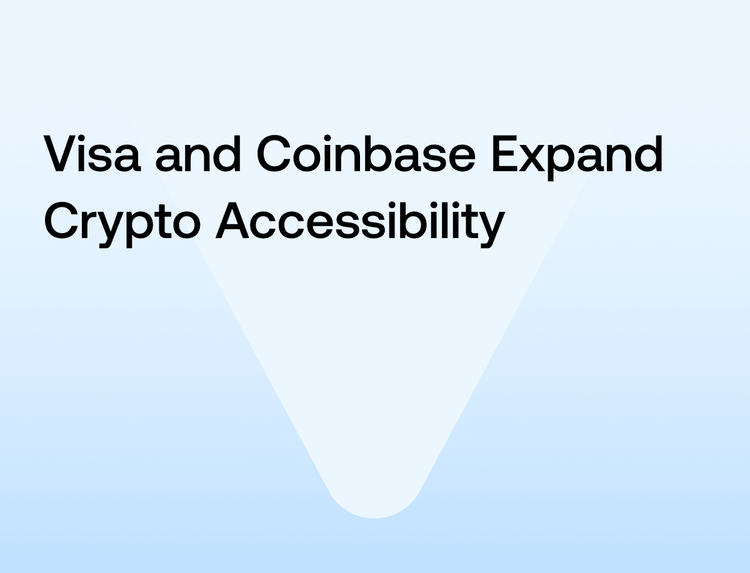
Tracing Blockchain’s Evolution: From Satoshi to Global Impact
From Satoshi's Vision to Today’s Blockchain Ecosystem
[ Crypto / Blockchain ]
Date
31 Oct 2024
Reading Time
5 min read
Share post
[ Crypto / Blockchain ]
The Birth of Blockchain Technology
In 2008, an anonymous individual (or group) under the pseudonym Satoshi Nakamoto introduced a revolutionary idea through a nine page document known as the Bitcoin: A Peer to Peer Electronic Cash System white paper. This paper laid out a decentralized protocol enabling secure peer to peer transactions without relying on a third party institution, a concept that went on to shape the future of finance and technology. Satoshi’s work not only outlined the framework for Bitcoin but also introduced blockchain, the technology underpinning Bitcoin as a trustless, transparent, and immutable ledger that would inspire countless applications beyond cryptocurrency.
Blockchain has since become a thriving ecosystem of cryptocurrencies, digital assets, smart contracts, and decentralized finance (DeFi), reshaping entire industries and spurring new fields of expertise. The global demand for blockchain savvy developers grew as interest from enterprises, governments, and financial institutions surged. This article traces blockchain’s evolution year by year, highlighting the people and innovations that have driven its development and the rise of a specialized workforce in crypto technology.
[ “In 2008, an anonymous individual (or group) under the pseudonym Satoshi Nakamoto introduced a revolutionary idea through a nine page document known as the Bitcoin: A Peer to Peer Electronic Cash System white paper.” ]
This document was a manifesto, explaining how a decentralized, cryptographically secure, peer to peer electronic cash system could operate independently of traditional financial institutions. The white paper outlined a system that could prevent double spending, ensuring the integrity of digital transactions without needing a central bank or third party verifier.
This year marked the inception of blockchain technology, and Nakamoto’s work quickly attracted a handful of cryptography and computer science enthusiasts. While Satoshi’s true identity remains unknown, this enigmatic figure ignited a technological revolution, setting the foundation for decentralized finance (DeFi) and digital currency.
2009: Genesis Block and Bitcoin Mining - The Launch of Blockchain in Practice
On January 3, 2009, the first ever Bitcoin block, known as the “Genesis Block,” was mined by Satoshi Nakamoto. It embedded a message referencing the financial crisis of that time, underscoring the vision for a financial system outside of traditional banking structures.

As Bitcoin mining took off, a niche but passionate group of early adopters joined the network, establishing the first crypto workforce. Mining provided not only an income stream for tech enthusiasts but also a decentralized verification mechanism, enabling the trustless nature of Bitcoin transactions. By the end of 2009, Bitcoin had become a fully functional digital currency, and blockchain had become a tangible reality.
2010: The Birth of Bitcoin Marketplaces and the First Transaction
In 2010, Laszlo Hanyecz made the first real world Bitcoin transaction, purchasing two pizzas for 10,000 BTC. This year marked Bitcoin’s initial move toward mainstream adoption and the beginning of Bitcoin marketplaces, which allowed people to trade the currency more easily.
This growth also ignited demand for crypto savvy developers and enthusiasts who could code, manage, and optimize blockchain technologies. Open source communities began to emerge, as developers worked to improve Bitcoin's software and help integrate it into the broader economy.
2011: Altcoins and the Expansion of Blockchain Applications
As Bitcoin gained popularity, alternatives called “altcoins” began to emerge, starting with Namecoin in 2011. This new project extended blockchain technology beyond finance, using it for decentralized domain name registration to enhance internet privacy.
Blockchain was evolving, and a growing workforce was drawn to the field, including programmers, cryptographers, and entrepreneurs who recognized blockchain’s potential for applications outside of cryptocurrency. The increased interest sparked further demand for blockchain developers, prompting educational resources and online communities to share expertise on crypto programming.
2013: Vitalik Buterin and the Birth of Ethereum
In 2013, 19 year old Vitalik Buterin proposed a new blockchain that would go beyond Bitcoin’s functionalities. He envisioned Ethereum, a decentralized platform that allowed users to create smart contracts-self executing contracts with the potential to automate and decentralize a wide range of services.
Buterin’s vision significantly expanded blockchain's capabilities, paving the way for decentralized applications (DApps). Ethereum’s promise inspired a new wave of developers and entrepreneurs to enter the blockchain space, marking a turning point where blockchain was seen as more than just a financial instrument. The demand for Ethereum developers soared, prompting tech giants and startups alike to seek blockchain talent.
2017: ICO Boom and a Surge in Blockchain Talent Demand
In 2017, the initial coin offering (ICO) boom drove blockchain development to new heights. Entrepreneurs used ICOs to raise funds by issuing their tokens, drawing a wave of capital and attention to the crypto space. Ethereum’s smart contracts made ICOs possible, attracting thousands of developers and investors.
The growth of blockchain specific job platforms like CryptoJobs and Blockgeeks provided clear pathways for developers, consultants, and advisors to join the ecosystem. Traditional institutions also began investing in blockchain research, creating a highly competitive landscape for experienced blockchain developers. The demand was so intense that some companies started offering six figure salaries and lucrative benefits to attract blockchain experts.
2020: Decentralized Finance (DeFi) and the Need for Specialized Expertise
By 2020, Decentralized Finance (DeFi) had gained immense popularity, with projects like Uniswap, Aave, and Compound providing decentralized alternatives to traditional banking services. This new frontier required advanced blockchain knowledge and programming skills, as the risks and complexities in DeFi were considerably higher.
The demand for blockchain developers with specialized DeFi expertise surged as DeFi projects grew, requiring engineers skilled in smart contracts, token economics, and financial algorithms. Companies like ConsenSys and specialized platforms such as Gitcoin became trusted sources for hiring and fostering blockchain talent.
2021: NFTs and Blockchain in the Creative Economy
In 2021, non fungible tokens (NFTs) captured global attention as a way to represent ownership of digital assets. The NFT craze expanded blockchain’s reach into the art, music, and gaming sectors, with developers working to create unique marketplaces and secure token standards.
Demand for blockchain developers grew exponentially as companies sought expertise in Ethereum’s ERC-721 and ERC-1155 token standards, critical for NFTs. Platforms like LinkedIn and job boards dedicated to crypto related roles became essential resources, as the industry needed talent not only in blockchain but also in creative applications of the technology.
2023: Layer 2 Solutions and the Focus on Scalability
As blockchain usage skyrocketed, so did concerns around scalability and efficiency. In 2023, Layer 2 solutions such as rollups and sidechains emerged as critical advancements to improve transaction speeds and reduce costs on main chains like Ethereum.
Skilled blockchain engineers and researchers specializing in cryptography, zero knowledge proofs, and sharding were in high demand. Projects such as Polygon, Optimism, and zkSync became major industry players, and developers sought out these companies and ecosystems as top career destinations in the crypto space. The need for talent with expertise in Layer 2 scaling solutions spurred educational programs and developer boot camps tailored to blockchain careers.
The Rising Demand for Blockchain Talent and Its Global Impact
From Satoshi Nakamoto’s seminal white paper to the expansive blockchain ecosystem of today, the industry has continuously evolved. Each innovation has pushed blockchain beyond digital currency, attracting a wide array of professionals, cryptographers, developers, entrepreneurs, and artists alike. This demand created a distinct workforce specializing in blockchain, with demand for these skills remaining high and salaries competitive across the globe.
With established developer communities and trusted companies leading blockchain’s growth, the future of blockchain innovation looks promising. Blockchain technology has inspired a new generation of professionals focused on transforming industries, reinforcing blockchain’s significance as a disruptive force with global influence.
Our Thoughts
The history of blockchain technology reveals how quickly a transformative idea can reshape society and spark an entirely new industry. As blockchain continues to evolve, so too does the workforce around it, becoming more specialized and intertwined with industries beyond finance. Today’s blockchain experts play a crucial role in this journey, and as blockchain applications expand, so will the need for talented, forward thinking developers. The story of blockchain’s growth serves as a reminder of the power of open source innovation and community driven development.
At CodeXTeam we bring together top global talent to deliver exceptional results. With access to experts from around the world, we provide individual specialists or entire teams tailored to meet business specific requirements.
Interested in learning more?
Chat with our AI-powered Virtual Assistant. He can answer all of your questions and help you book a call with our team. Interested in joining the team? Check out available positions here.


